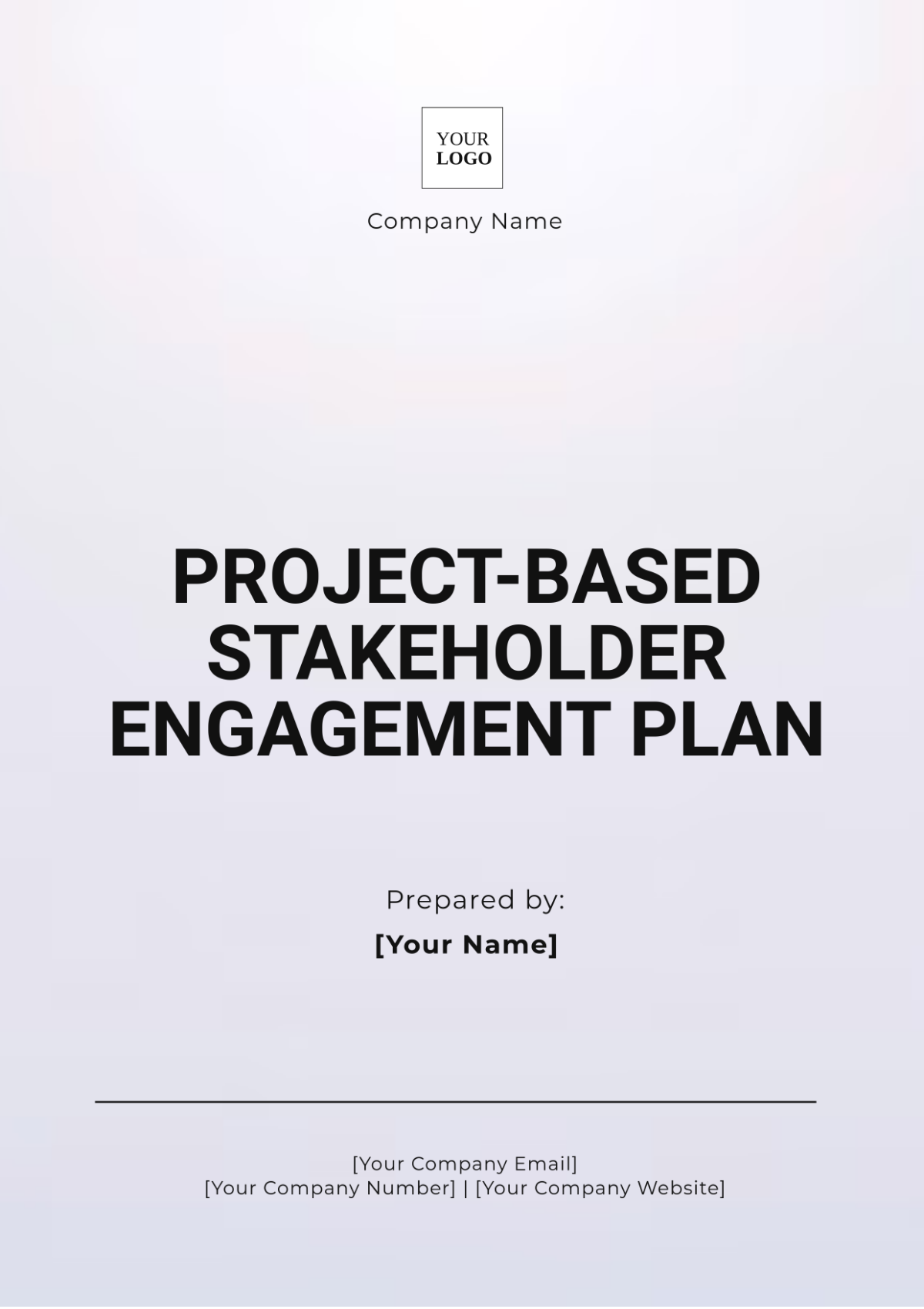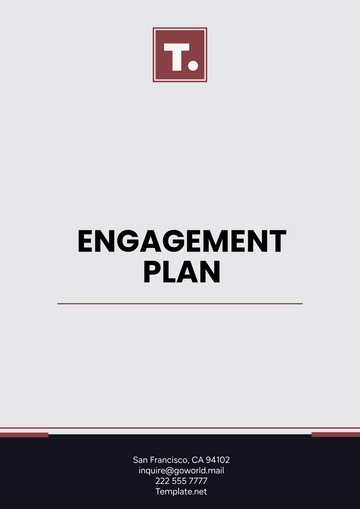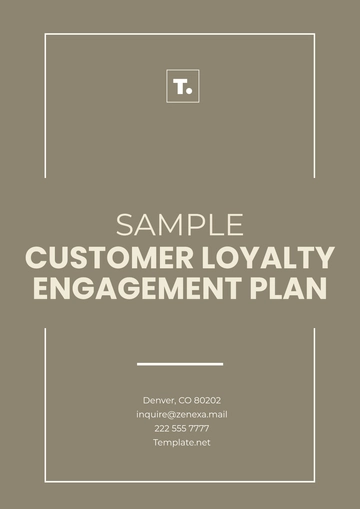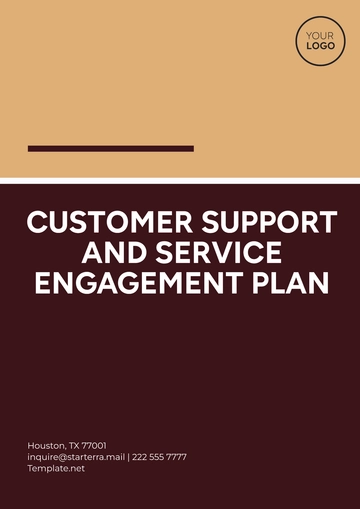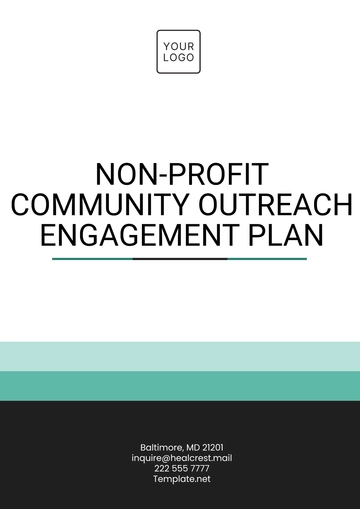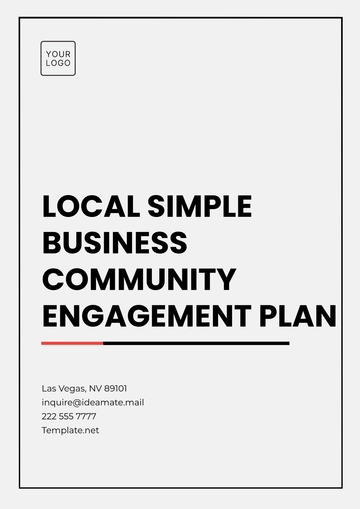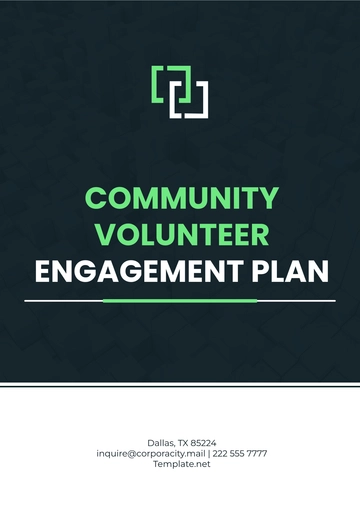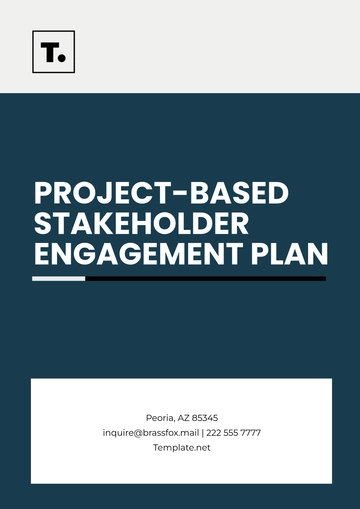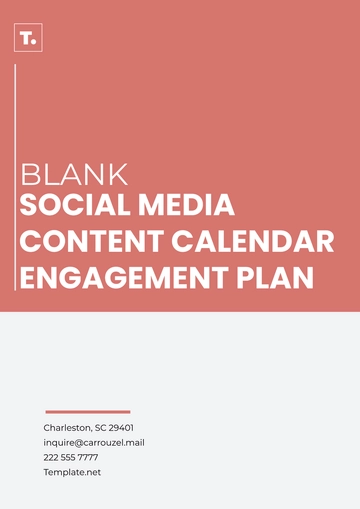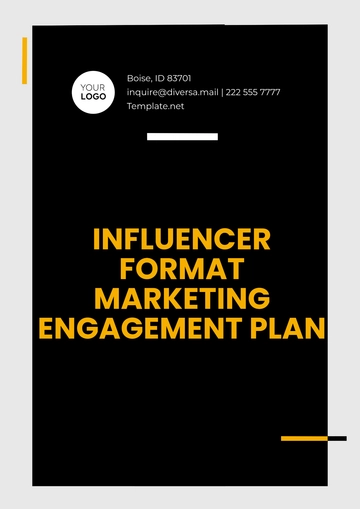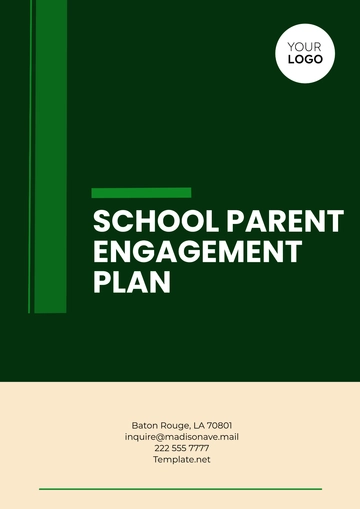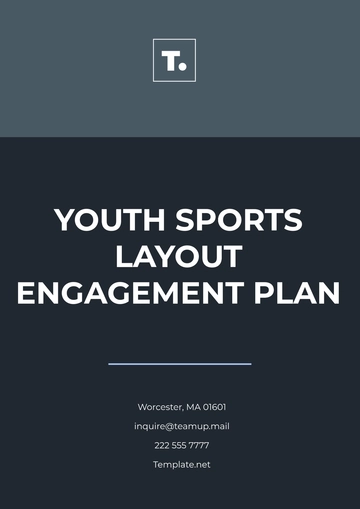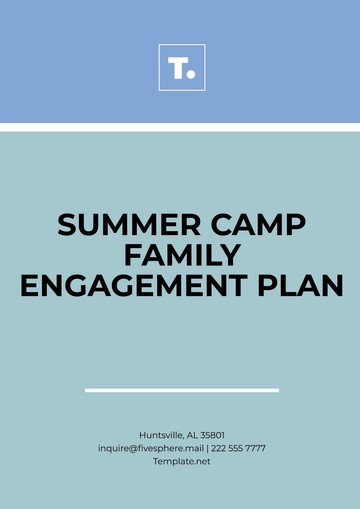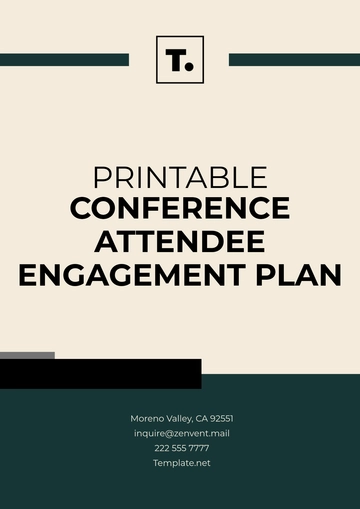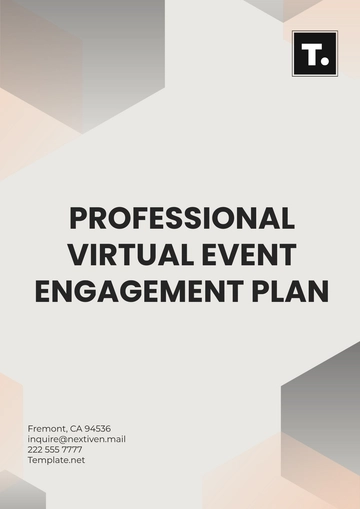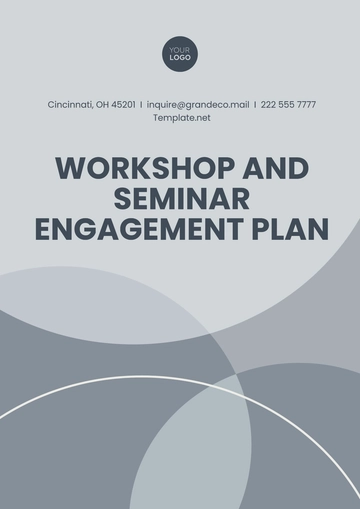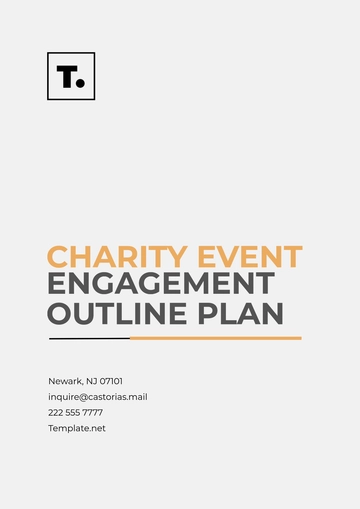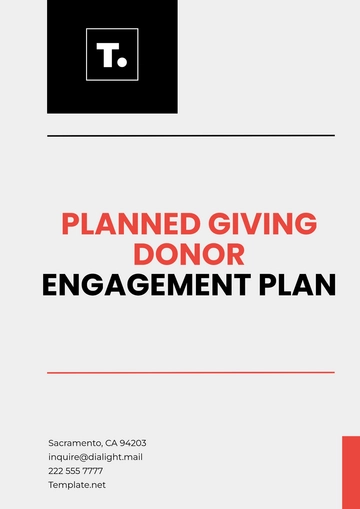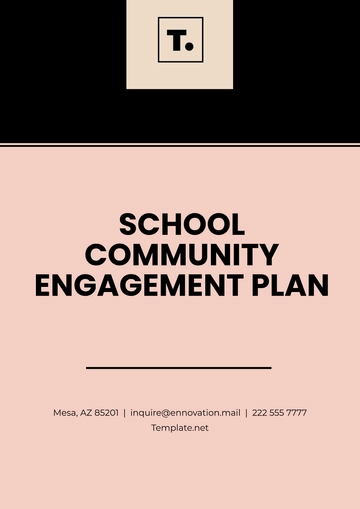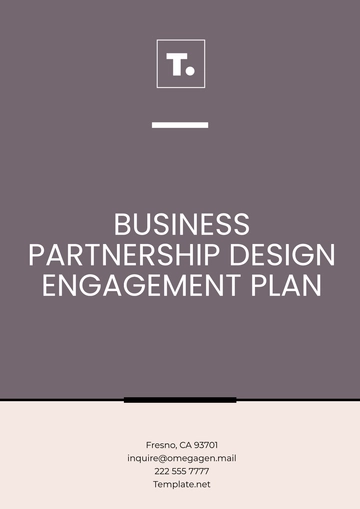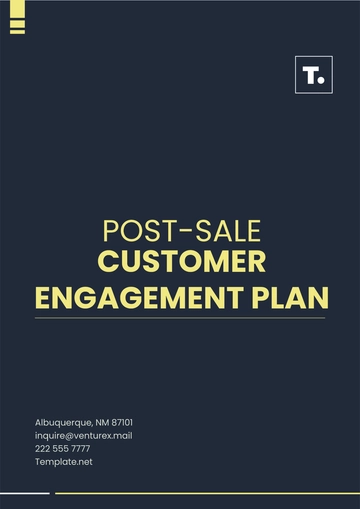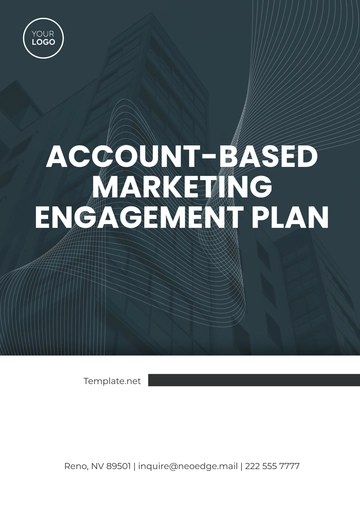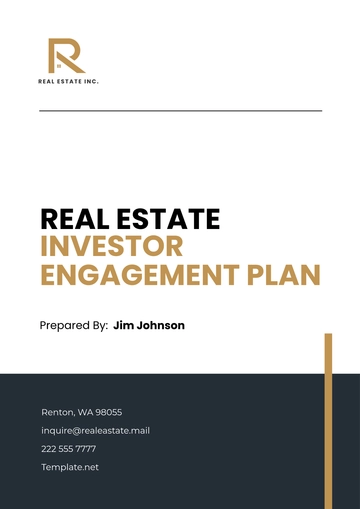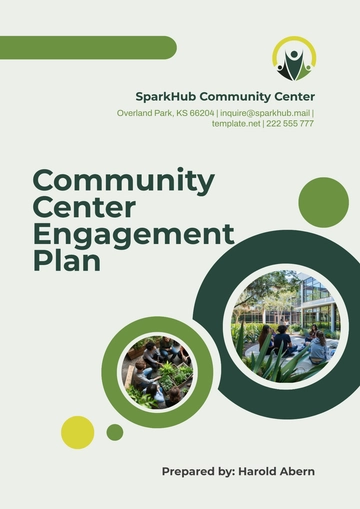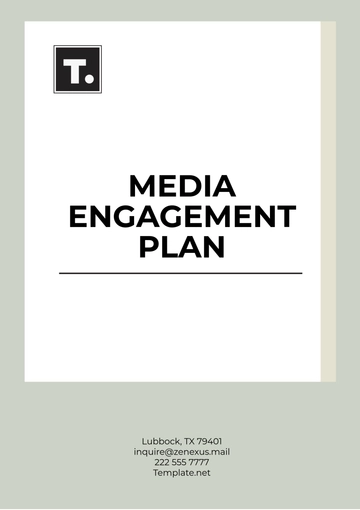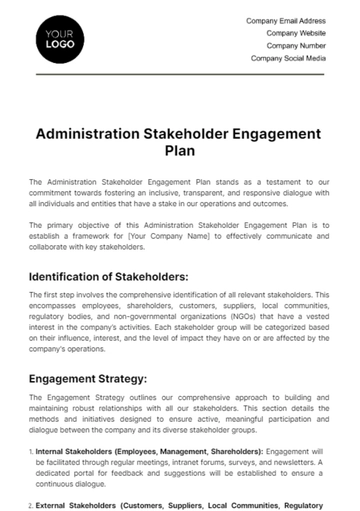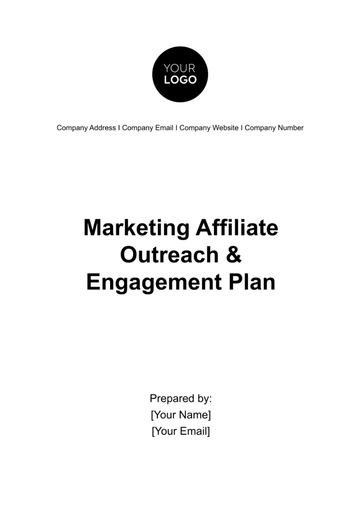Project-Based Stakeholder Engagement Plan
Prepared By: [Your Name]
Company Name: [Your Company Name]
Date: October 9, 2050
Project Overview
Project Name: Community Park Development Project
Project Description: This project aims to design and develop a community park that includes playgrounds, walking trails, and green spaces to enhance recreational opportunities for residents and promote community engagement.
Project Timeline: January 1, 2051, to December 31, 2051
1. Stakeholder Identification
1.1. Key Stakeholders
Stakeholder | Role/Interest | Influence | Interest | Engagement Strategy |
|---|
Local Residents | Users of the park; impact design | High | High | Community meetings and surveys |
City Council | Approves funding and permits | High | Medium | Presentations and reports |
Local Businesses | Sponsors; users of facilities | Medium | High | Meetings and proposals |
Environmental Groups | Advocate for sustainability | Medium | High | Workshops and discussions |
City Planning Department | Regulatory oversight and approval | High | Medium | Regular progress meetings |
1.2. Stakeholder Analysis
Influence/Interest Matrix: A visual representation categorizing stakeholders based on their influence and interest, identifying key stakeholders that require focused engagement efforts.
Stakeholder Profiles: Detailed descriptions of each key stakeholder group, outlining their specific interests and potential challenges in the project.
2. Engagement Goals and Objectives
Goal 1: Build community support for the park development project.
Objective 1: Conduct at least three community meetings by June 2051 to gather input and feedback from residents.
Objective 2: Achieve at least 75% positive feedback from residents in post-meeting surveys.
Goal 2: Ensure regulatory compliance and secure necessary approvals.
3. Engagement Strategies and Activities
3.1. Communication Methods
Stakeholder | Communication Method | Frequency | Responsibility | Feedback Mechanism |
|---|
Local Residents | Community meetings | Monthly | Project Manager | Post-meeting surveys |
City Council | Presentation updates | Quarterly | Project Coordinator | Formal feedback requests |
Local Businesses | Direct meetings | Bi-monthly | Community Liaison | Partnership proposal feedback |
Environmental Groups | Workshops | As needed | Environmental Consultant | Workshop feedback forms |
City Planning Department | Progress reports | Monthly | Project Manager | Meetings for discussion |
3.2. Planned Engagement Activities
Activity 1: Community Meetings
Purpose: To present project updates, gather input, and address concerns from residents.
Target Audience: Residents, and community leaders.
Expected Outcomes: Increased community support and actionable feedback for project improvements.
Activity 2: Workshops with Environmental Groups
Purpose: To discuss sustainable practices and gather recommendations for the park's design.
Target Audience: Environmental advocates, and park planners.
Expected Outcomes: Enhanced design that aligns with environmental standards and community values.
4. Roles and Responsibilities
Role | Responsibilities |
|---|
Project Manager | Oversee project implementation and stakeholder engagement |
Community Liaison | Organize community meetings and gather feedback |
Environmental Consultant | Facilitate workshops with environmental groups |
Project Coordinator | Liaison with the City Council and Planning Department |
5. Monitoring and Evaluation
5.1. Evaluation Metrics
Metric | Target |
|---|
Number of attendees at community meetings | 50+ attendees per meeting |
Percentage of positive feedback collected through surveys | 75% positive responses |
5.2. Feedback and Adaptation
Feedback Mechanisms: Surveys and feedback forms collected after meetings and workshops.
Adaptation Process: Monthly review meetings with the project team to discuss feedback and adjust engagement strategies as needed.
6. Budget and Resources
Resource | Description | Estimated Cost |
|---|
Venue Rental | Rental cost for community meeting spaces | $2,000 |
Workshop Materials | Supplies and materials for workshops | $1,000 |
Marketing Materials | Flyers and online advertisements for events | $500 |
Consultant Fees | Fees for environmental consultant services | $3,000 |
7. Timeline of Engagement Activities
Activity | Start Date | End Date | Responsible |
|---|
Community Meetings | January 15, 2051 | December 15, 2051 | Project Manager |
Workshops with Environmental Groups | March 1, 2051 | October 1, 2051 | Environmental Consultant |
Progress Reports to City Council | February 1, 2051 | November 1, 2051 | Project Coordinator |
Conclusion
The success of this Project-Based Stakeholder Engagement Plan relies on active participation, open communication, and a commitment to addressing stakeholder needs and concerns. Regular monitoring and evaluation will ensure the plan remains effective throughout the project lifecycle.
Plan Templates @ Template.net
